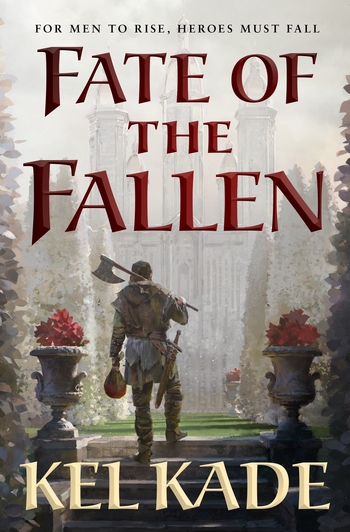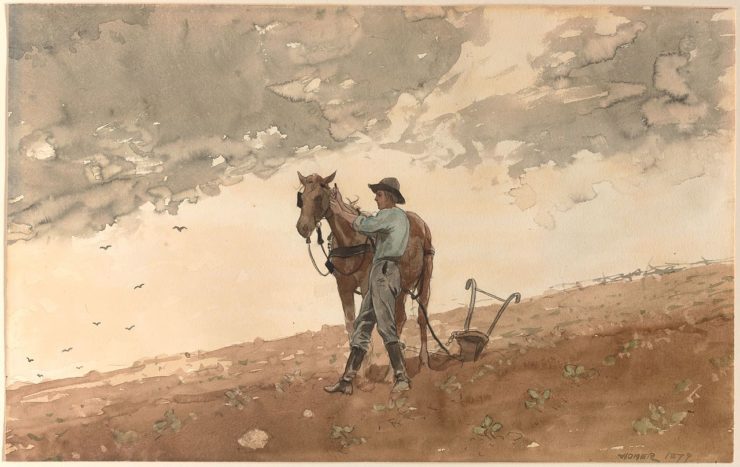This is the time of year in the United States when summer officially ends, school has started just about everywhere, and people celebrate the occasion with barbecues, last-gasp summer fun, and bumper-to-bumper traffic in honor of “Labor,” which is presumed to mean anything from generic work to unionized labor. Because this is the SFF Equine series, aka the Horseblog, I think it’s a good time to celebrate the equines who have worked alongside humans for millennia.
The mythos of the horse is often associated with the elite, the aristocracy, kings and nobles who could afford to keep this large, expensive animal. He was an engine of war, and still is a display of wealth and class. Rare breeds, highly trained racehorses and show champions, horses bred for a particular look above and beyond any specific function, all imply a lot of disposable income and a lot of leisure time.
But even while the horse has been showing himself off among the rich and privileged, he’s also been an essential part of human life on all levels. The fancy horse might be trippiting down the road between the shafts of milady’s carriage, but the steady workhorse was plowing fields, clearing forests, hauling wagons, pulling cannons for the generals on their haughty chargers. He was steady, reliable transport, whether ridden or driven. Looks and pedigree didn’t matter; what the working horse needed was a calm temperament, a sound body, and, if he was ridden, smooth gaits.
The working horse wasn’t about flash or display. He had to be strong. He needed a sensible mind and a willing disposition. He had to stay sound and healthy through his working life.
He also had to put up with tough conditions, poor fodder, and more mistreatment than modern people want to think about. His owners and users were seldom sentimental about his use or misuse. The point was not to relate to him as a fellow sentient being but to get as much work out of him as possible.
When mechanical transport superseded the horse, some things changed for the better. Horses are still mistreated, still used like machines especially in racing and showing, but there is also more room for sentiment. Hobbyists can afford to treat their horses as companions and friends rather than farm equipment.
Buy the Book


Fate of the Fallen
It’s amazing is that horses have put up with so much for so long, and been so willing to keep on working. And not just horses, either. Donkeys have suffered even more use and abuse, without any of the respect that humans have given horses.
Mules, that hybrid of both, have proved themselves tougher, stronger, hardier than either—and smarter, which is what “stubborn as a mule” really means. Mules won’t take nearly as much crap as either donkeys or horses. And yet they’ve kept right on working, too, year after year, generation after generation.
They say we don’t deserve dogs—dogs are pure spirits, love in a fur coat. But I don’t think we deserve equines, either.
These big, powerful animals are so generous and so fundamentally kind. They accept humans as part of their herd and agree to do whatever the humans ask. When you think about how big they are, how much strength they have, it’s a miracle that they’re so willing to cooperate with our relatively tiny, weak species. And yet they do, and it’s in large part thanks to them that we’ve spread so far and managed to feed and transport and defend ourselves in the process.
The next time you read or write a story or novel or play a game or watch a film with horses in it, spare a thought for the steady, all but invisible cart horses, plow horses, mules and donkeys. Think about the nameless but essential mounts and remounts, without whom the characters can’t get where they’re going in time to get anything done. Salute the loyal and unspectacular working equine. He may not be pretty, he may not be flashy, but the world couldn’t run without him.
Judith Tarr is a lifelong horse person. She supports her habit by writing works of fantasy and science fiction as well as historical novels, many of which have been published as ebooks by Book View Cafe. She’s even written a primer for writers who want to write about horses: Writing Horses: The Fine Art of Getting It Right. Her most recent novel, Dragons in the Earth, features a herd of magical horses, and her space opera, Forgotten Suns, features both terrestrial horses and an alien horselike species (and space whales!). She lives near Tucson, Arizona with a herd of Lipizzans, a clowder of cats, and a blue-eyed dog.










